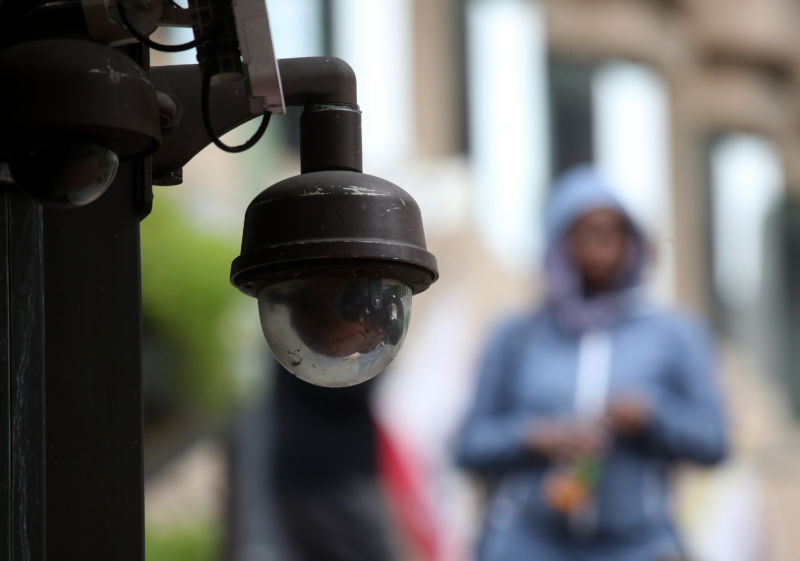familiar faces –
Inquiring lawsuits want to know what the DOJ, DEA, & FBI are using the tech for.
Kate Cox –

Enlarge/A video surveillance camera hangs from the side of a building on May 14, 2019, in San Francisco, California.
use of facial recognition has spread from photo albums and social media to airports, doorbells, schools, and law enforcement. Now, the American Civil Liberties Union wants top US agencies to share records detailing what face data they’re collecting and what they’re doing with it.
The ACLU in January submitted Freedom of Information Act (FOIA) requests to the Department of Justice, the Drug Enforcement Administration, and the FBI seeking records relating to the agencies’ “use of face recognition programs and other biometric identification and tracking technology.” Almost 10 months later, the ACLU has received no response. And so the organization today filed suit against all three agencies, seeking the records.
The records are “important to assist the public in understanding the government use of highly invasive biometric identification and tracking technologies,” says thecomplaint, filed in federal court in Massachusetts. Through the records, the ACLU seeks to “understand and inform the public about, among other things, how face recognition and other biometric identification technologies are currently being used by the government and what, if any, safeguards are currently in place to prevent their abuse and protect core constitutional rights. “
Becoming endemic
Even a decade ago, the ubiquity of modern facial recognition we now face worldwide might still have been surprising. The technology is being used in places likeschools and summer campsand has even been proposed to work forage verification for porn access. Its use by law enforcement, however, creates the greatest concern for privacy and civil rights advocates.
“The FBI is currently collecting data about our faces, irises, walking patterns, and voices, permitting the government to pervasively identify , track, and monitor us, “the ACLU wrote in ablog postabout the lawsuit. “Because of the FBI’s secrecy, little is known about how the agency is supercharging its surveillance activities with face recognition technology,” the organization added.
The data that has become public, however, is already enough to generate concern, the ACLU went on:
Even in the highly unlikely event that face recognition technology were to become 100% accurate, the technology’s threat to our privacy rights and civil liberties remains extraordinary. This dystopian surveillance technology threatens to fundamentally alter our free society into one where we’re treated as suspects to be tracked and monitored by the government / 7.
That’s why a number of cities and states are taking action to prevent the spread of ubiquitous face surveillance and why law enforcement agencies, at minimum, must come clean about when, where, and how they are using face recognition technology. There can be no accountability if there is no transparency.
Rekognize me?
The ACLU has several times in the past flagged facial-recognition tech, especially Amazon’s Rekognition platform, for its false positives and unreliability . In 2018, the organization ran a test running photos of members of Congress through Rekognition; the softwareerroneously matched 28 of themto mugshots.
A little more than a week ago, the ACLU releasedresultsof a similar test, which this time falsely matched27 professional athletesfrom New England major league sports teams to mugshots.
In a statement to Ars about the test, Amazon accused the ACLU of “knowingly misusing and misrepresenting” its software. The industry giant added, “When used with the recommended 99% confidence threshold and as one part of a human-driven decision, facial-recognition technology can be used for a long list of beneficial purposes, from assisting in the identification of criminals to helping find missing children to inhibiting human trafficking. “
Rekognition has met with mixed results from real-world police departments. The Washington Post in Apriltook a deep lookat how the technology is working out in one Oregon county; police in Orlando, meanwhile,ended a pilot programusing Rekognition in June 2018.
Amazon has also filed patents that would allow its Ring line of home surveillance cameras to ship with Rekognition in them,drawing concernfrom lawmakers and advocates worried about Ring’s partnerships with more than 400 local police departments across the country.

(Read More) ******************************************)




GIPHY App Key not set. Please check settings